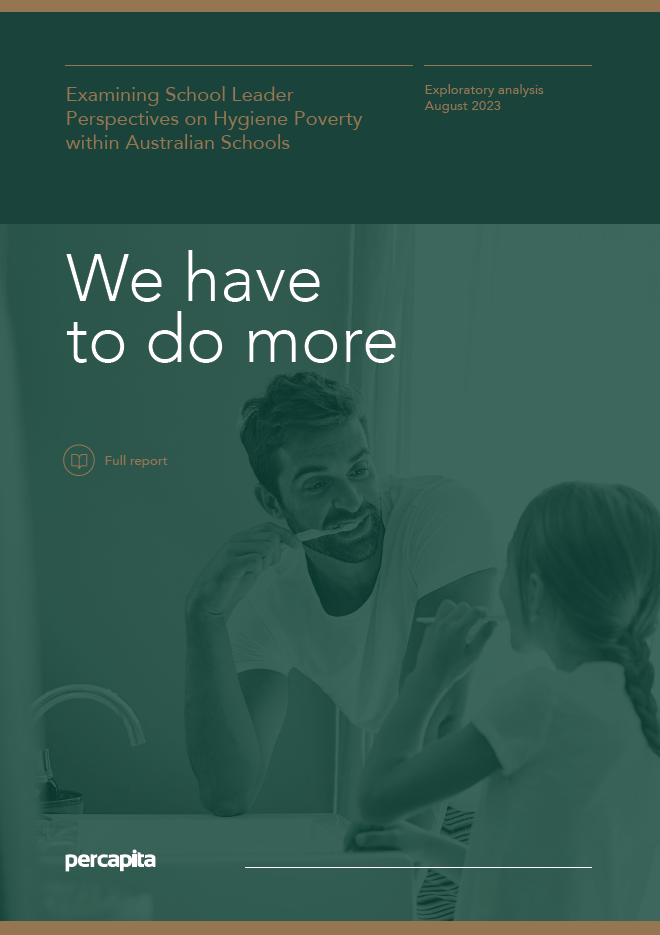There is a genuine dearth of research exploring the impact of the provision of hygiene resources on the health, and wellbeing of Australian children. While it is predictable that the benefits are significant particularly with regard to health, there is little known about the ancillary impacts of such provisions.
Notably within Australia accessing hygiene products remains challenging for many low-income families, given the significant costs attaching to such goods and their limited availability through giving/donation programs.
Understanding the critical role that access to such goods plays in the life of a child is of immense importance. The benefits of access to hygiene products transcend the notion of hygiene alone, likely conferring significant benefits to reduced absenteeism, reduced presenteeism, improvements in mental health and better engagement with school and civic systems. These impacts, in turn, are likely to improve academic performance and may be associated with better educational outcomes in terms of educational attainment.
A heartening trend in recent times has been the movement to address period poverty, and the associated research evidencing the benefits of such programs. Yet there is a shortage of research exploring both the need for and the impact of hygiene product provision beyond access to period care products.
These essential goods, while often taken for granted are essential to the health and wellbeing of recipients. The essential goods provisions include, toothpaste, and toothbrushes, soaps, shampoos, razors, shaving cream, hand washes, hand sanitisers, deodorants and period care products. Understanding how such product provisions support better wellbeing outcomes will undoubtedly inform better policy and support determinations pertaining to the provision of critical funding to support the sustainability and furtherance of this initiative.

